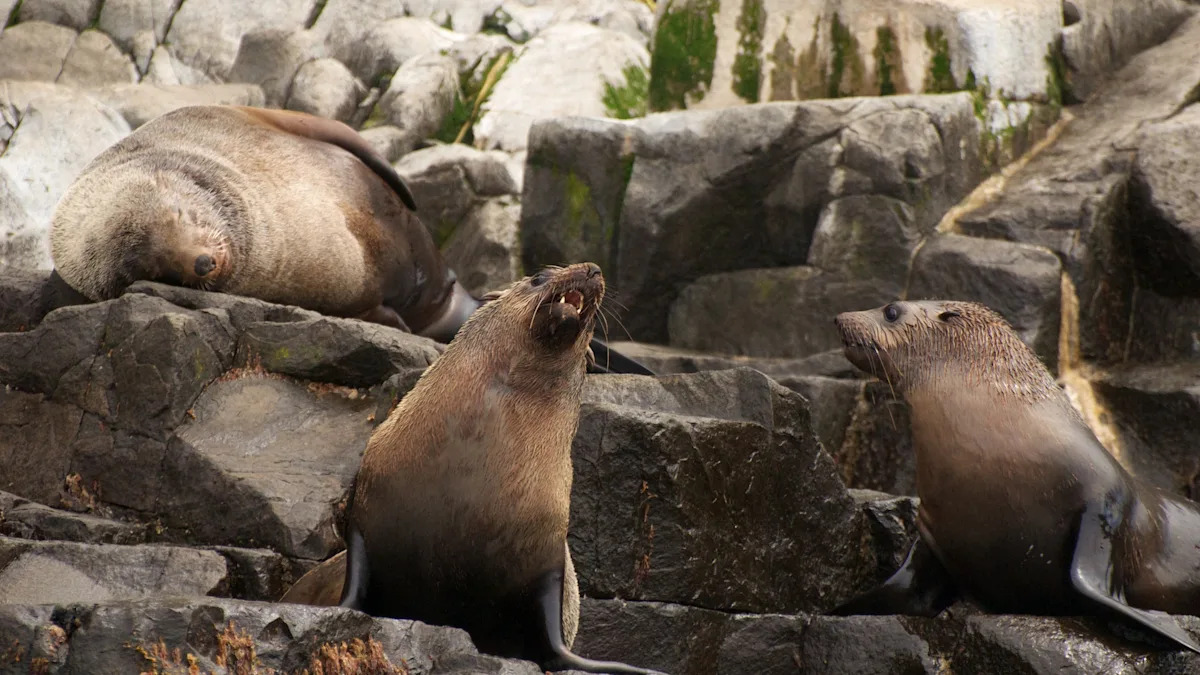Officials have cleared the name of a man after originally offering a $20,000 reward for information leading to his arrest. The arrest was connected with a disturbing allegation at a popular sea lion hotspot in Pacific Grove, California — a case some online were calling “unbelievable.”
According to an Instagram post from local outlet KSBW (@ksbw_8), the National Oceanic and Atmospheric Administration had offered a $20,000 reward for information leading to the arrest of a man accused of decapitating a sea lion on July 27. The agency said the animal was already deceased before the act took place, but the cause of death was not determined.
The post had said that a witness reported seeing him remove the animal’s head using a saw. He then allegedly placed it in a plastic zip bag and left the area in a late-model Cadillac Escalade.
The man, Jason Bietz, later contacted the agency and the Los Angeles Times to clear his name. He said he didn’t take the head and that any comment he made to the witness saying he planned to was “sarcastic.”
The Times reported that the NOAA “took down the photo and said that no mammal parts had been taken from the beach after all.”
Bietz said that he and his teenage daughter, who is interested in marine biology, were looking at the dead seal when a woman approached them. Rashelle Diaz, the woman, told the Times that she saw Bietz “prodding” the sea lion with a knife and that he had told her he was planning to take the head.
When he later left the area with something in a plastic bag, Diaz assumed it was the head and reported the supposed act.
The Times’ article page has a video Diaz took while confronting Bietz. In the video, he did indeed answer as though he was planning to take the head across several responses. He said he planned to dry it and challenged her assertion that there is a law against it.
Diaz told the Times her goal was to stop him from doing so and not to get him in any wider trouble. Now that she knows he did not do so, regardless of his supposed intent, she indicated she is satisfied with the outcome.
The report had sparked outrage among residents and marine advocates. Some commenters noted that the sea lion was already dead. But others pointed out that handling or mutilating marine mammals — living or deceased — is illegal under the Marine Mammal Protection Act.
Experts say the rule helps prevent the emergence of a black market for animal parts, which could encourage poaching and further harm protected species.
“This definitely feels like a violation of the Marine Mammal Protection Act,” one user wrote.
The Act does cover this, the Times said. It reported that each violation can result in a civil fine of up to $36,498, or a criminal fine of up to $100,000 and up to one year in jail.
Another added, “Even if the sea lion was not living, mutilating animals is not normal.”
Commenters on the original post also urged the public not to dismiss the case.
“To folks brushing this off because the animal was already dead – the reason enforcement matters is to stop a market for these parts before it starts,” one user explained. “It’s disrespectful to the animals and to legitimate organizations that collect carcasses for research.”
Other incidents have shown how harmful it can be when people approach live sea lions.
Join our free newsletter for good news and useful tips, and don’t miss this cool list of easy ways to help yourself while helping the planet.
